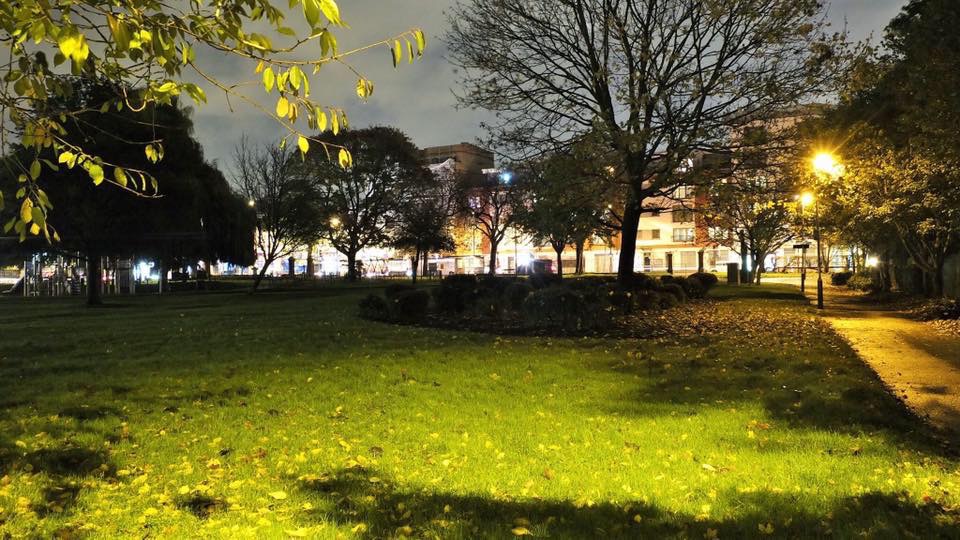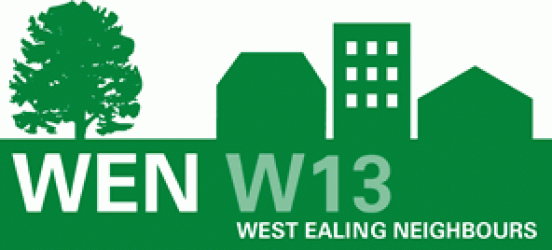DAY 8 – Wednesday 23 November 2011
As part of an ongoing series, Eric Leach reports from the Independent Examination of Ealing Council’s 2026 Local Development Framework Core Strategy (LDF CS).
Elizabeth Fieldhouse, the Government appointed Planning Inspector, today concluded her examination of Ealing Council’s 15 year land use plans. Her public examination hearings, which lasted eight and a half days, have considered Ealing Council’s Local Development Framework Core Strategy (LDF CS).
Hard copies of the latest batch (200+!) of the Inspector’s suggested changes and the Council’s responses were handed out to attendees. There were many queries on the detailed Council responses and none more so than on heritage issues. Representatives from the Ealing Cricket Ground Area Panel (CGAP), Ealing Civic Society (ECS) and the LibDems all made various attempts to make the LDF CS more heritage friendly but met stout resistance from Ealing Council. ECS strongly questioned why there was no explicit protection for Ealing centre’s heritage assets.
But for me one of the Council’s written responses, detailed below, tells us all we want to know about senior Ealing Council Officers attitude to Ealing’s heritage:
‘That which has now become Ealing’s Heritage was not heritage when it was built and it is therefore incorrect to state ( by ECS) that ‘heritage assets have traditionally had a key role in shaping the character of Ealing’. If anything, the Victorian context of the Borough represents a radical departure from its previous character and this general lack of sensitivity to the past is strongly reflected in up until the origin of the modern conservation movement in the late 1970s. It does not help the understanding and protection of Ealing’s heritage to dwell on past attitudes to conservation.’
The Inspector complemented the Council on the comprehensive nature of the LDF CS Glossary. She did however want another word defined in the Glossary. The word is ‘historic’ which is used extensively throughout the document. She repeated what she had intoned earlier in the examination that ‘historic’ (as opposed to the word ‘heritage’) had no defined meaning in national planning documents. To the amusement of many attendees she wanted the Ealing Council definition of the word ‘historic’. Ealing Council Officers were speechless at that point.
A commitment to change the word ’regeneration’ to the word ‘revitalisation’ throughout the document appeared to gain traction with the Inspector.
The Inspector wrapped up proceeding by outlining her recent and planned site visits. She hoped to get a first version of her examination report to the Council for fact checking in early January 2012. She would produce her final report accepting or rejecting the Ealing LDF CS at the end of January 2012.
Here are some personal reflections on the examination:
- The facilities provided by Ealing Council were poor. There was no public address system in operation. We used three different rooms. In all the rooms the noise of the workers renovating the exterior of the Town Hall and the Dickens Yard workers quite often made it impossible to hear what anyone was saying. The wood panelling in Queens Hall is very badly scratched and is crying out for some tender loving care. But the general run down nature of all the rooms we used seems to suggest a loss of civic pride.
- The absence of any of the 69 elected Councillors (except for a short cameo appearance by Councillor Sumner) at any of eight and a half day examination I do find scandalous. These Councillors were elected in May 2010 to represent the interests of their local residents and in what way the Councillors absence at this examination meets this responsibility is beyond me. No representatives of either the Conservative or Labour parties participated in this examination. The former party is the majority party running the country and the latter party runs Ealing. Don’t any of them care about the issues being discussed?
- Ealing Planners report to the Ealing Council Regeneration and Housing Department. The LDF CS is primarily a regeneration and housing spatial planning proposal. Yet none of these policy makers attended any of the examination sessions. I found their absence, even as observers, quite shocking.
- Overall I would say that the residents’ and community groups were not too well prepared for the format of the examination. We certainly did not realise that almost every day new documents would be added to the digital ‘Evidence Base’ and that these documents would continue to be updated and amended throughout the examination.
- I estimate that over £2 billion will have to be found somewhere to build the 14,000 new homes being proposed. Given the parlous financial state of the UK economy and the economy of our biggest export market – the Eurozone – is it ‘sound’ to commit to such an ambitious building programme? Further more it would be reckless for Ealing Council, with long term borrowings of over £646 million (March 2011), to attempt to finance any home building itself.
- The demeanour and attitude of the Ealing Council Planning Officers throughout the whole of this public examination has been professional, detached and almost clinical. Like medical clinicians they have clearly been advised not to get emotionally involved with ‘the patient’ and to meet the needs of the planning guidelines. The representatives of the residents’ and community groups have been more obviously attempting, sometimes heroically, to meet the needs of residents. It is, of course, one of life’s ironies that the only people sitting at the big table day after day at these meetings who have been elected to represent the people of Ealing are the residents and community groups’ leaders.
- The general attitude of residents’ and community groups at the end of the examination was one of almost resignation that the LDF CS would be deemed sound by the Government Inspector. Interestingly enough this ‘down trodden’ attitude resembled the one we all felt at the end of the Arcadia Public Inquiry in 2009. And look how wrong we were then!
Eric Leach
23 November 2011


“6.The demeanour and attitude of the Ealing Council Planning Officers throughout the whole of this public examination has been professional, detached and almost clinical. Like medical clinicians they have clearly been advised not to get emotionally involved with ‘the patient’ and to meet the needs of the planning guidelines.”
That sums up how I felt when I received a response from the council about a possible planning breach they investigated. The letter purely stated that they could find no breach. It completely ignored the list of problems the site posed for nearby residents. Even if they had only said, “We understand you have some concerns about the site, however upon inspection we can find no breach of planning regulations,” it would have been less of an inconsiderate, robotic reply.